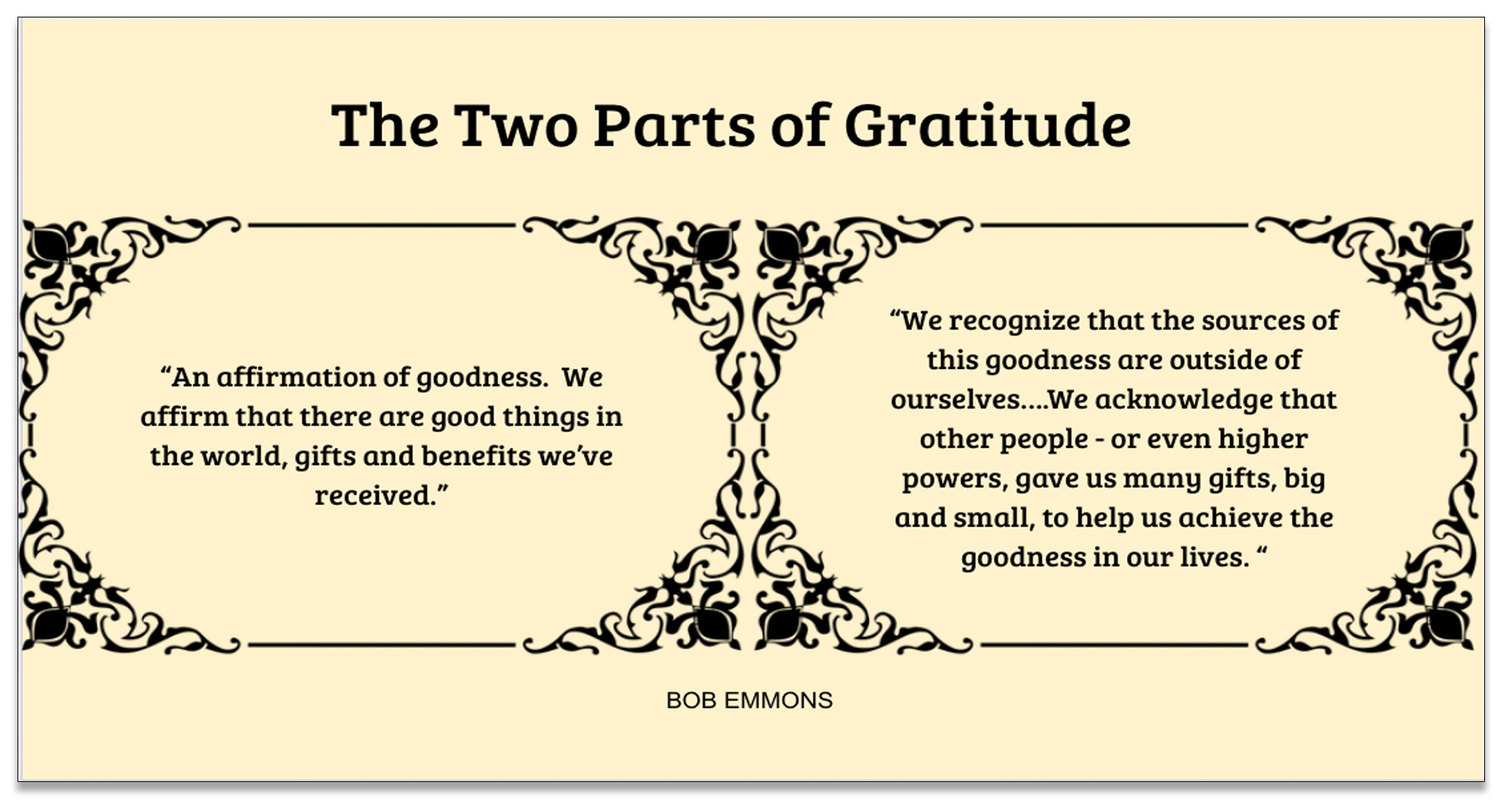
By LCS faculty member Libby Dalrymple, from her Chapel Address, October 7, 2020
I’d like to take a moment this morning to think about two words.
The first word is Thanksgiving.
It’s a two-part, compound word that implies action: Giving …..Thanks. That is what our upcoming holiday is all about – taking time in our lives to GIVE THANKS. It’s wonderful that we have a special holiday devoted to this concept but, as we all know, it’s important to give thanks more than once a year. Ideally, we try to do so daily.
This brings me to the second word: Gratitude.
In the field of Positive Psychology, there are psychologists who research many aspects of Gratitude, including a man named Bob Emmons. Even though it’s only one word, he talks about gratitude as being conceptually made up of two parts: “it’s an affirmation of goodness. We affirm that there are good things in the world, gifts, and benefits we’ve received.”
In the second part, he says, “We recognize that the sources of this goodness are outside of ourselves. …We acknowledge that other people—or even higher powers, gave us many gifts, big and small, to help us achieve the goodness in our lives.”

People have myriad ways of defining Gratitude. According to the article More than a Feeling, “some call it an attitude, some call it an action, some call it an emotion.” As you know from our work in Advisor groups and House meetings, Gratitude is one of VIA’s 24 character strengths and falls under the category of “transcendence”. This virtue’s domain encompasses strengths that forge connections to the larger universe. “Gratitude feels good—it is rewarding—and it is also humbling when we consider what others have done for us.” (Live Happy)
When LCS students, Nicole Liu ’21, Dylan Clement ’21and I started talking about plans for this chapel talk, they said something awesome: “everyone at this school knows what Gratitude is.” It’s true; we truly have a strong culture of Gratitude here at The Grove. It is not something that magically happens, however, every member of our community plays a role cultivating it.
So WHY Gratitude?
Expressing gratitude isn’t just a good idea, it is actually good for us. It can increase our overall well-being in a variety of ways and create upward spirals of positive emotion in our lives. In fact, it can impact us on a neurological level.
Watch the video on the Science of Gratitude to learn a little more about it:
We’ve learned that it is possible for Gratitude to make lasting changes in the brain, but the key is to keep practicing! When we practice something and make it a regular part of our life, it becomes a ritual. There is power in rituals and they can be deeply personal. In order to develop a ritual, however, we need to figure out what works for us individually and sense what “feels right” so that we can incorporate meaningful practices into our lives.
“One of the things that I started to do to try and combat personally hard times, was to show gratitude to myself every morning. So when I woke up in the morning, I started by thanking my eyes for letting me see, then my mind for letting me think. My hands for letting me feel, my legs for supporting me, and so on. It has since become my daily ritual. This helped me to realize that even when the world feels like it is crumbling around me that I am still alive and I still get to experience the world through all of my senses and ability. This later led to me counting the things I was grateful for at the end of each day. It usually starts with something like, ‘the lunch was really good today’ or ‘I got an A on my test.’ No matter what, I try to end each night with this little cheesy statement, ‘Finally, I am thankful to have more things to be grateful for then I can remember or count.’ I think it’s super important to think about the little things in our lives that are special to us. to find the good in every day, even if it’s something as little as being able to see.” Dylan Clement ’21
